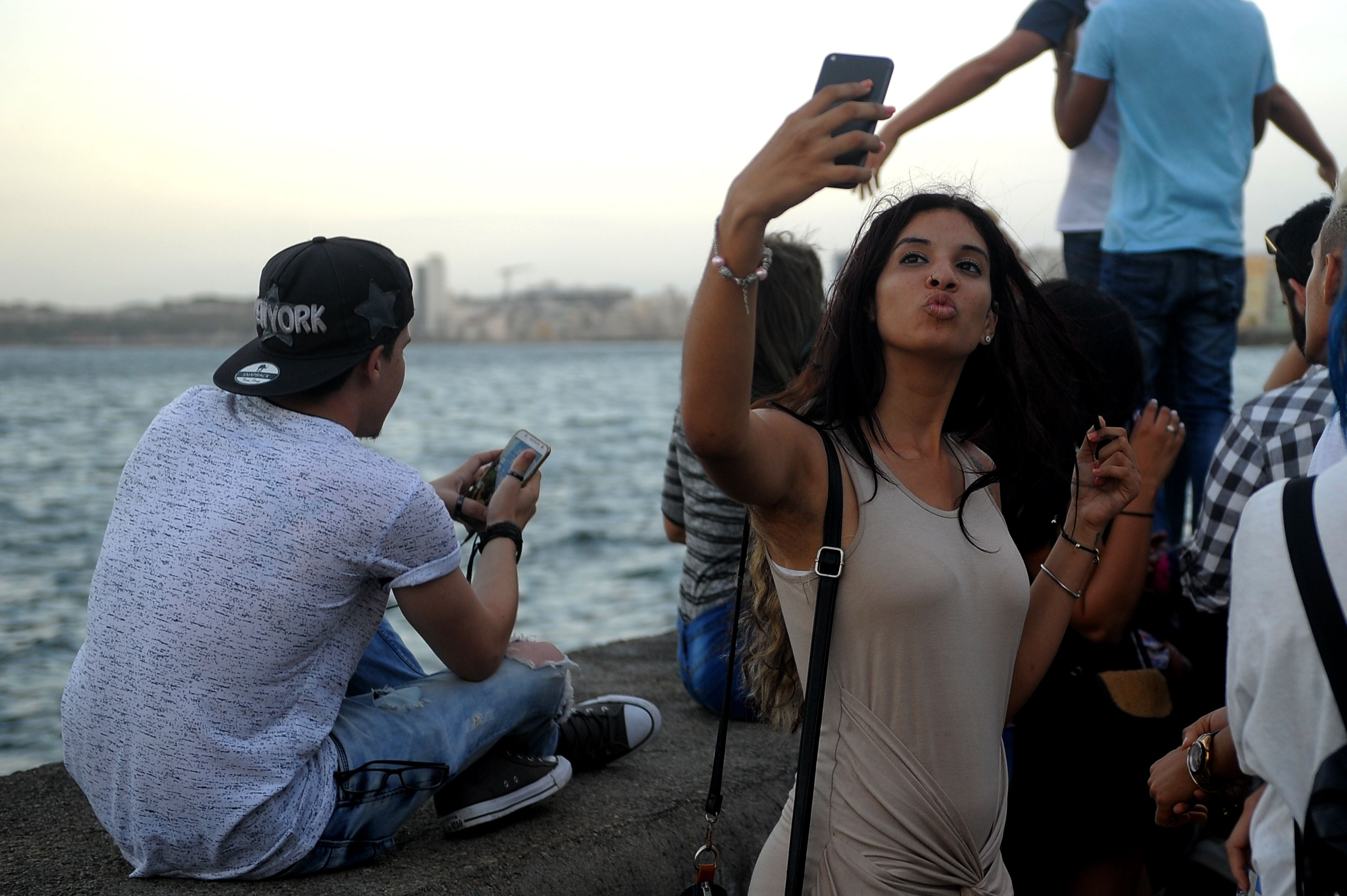Young adults spend half an hour a day worrying about their appearance, study finds
Some young adults have even avoided social situations due to having spots of cold sores

Your support helps us to tell the story
From reproductive rights to climate change to Big Tech, The Independent is on the ground when the story is developing. Whether it's investigating the financials of Elon Musk's pro-Trump PAC or producing our latest documentary, 'The A Word', which shines a light on the American women fighting for reproductive rights, we know how important it is to parse out the facts from the messaging.
At such a critical moment in US history, we need reporters on the ground. Your donation allows us to keep sending journalists to speak to both sides of the story.
The Independent is trusted by Americans across the entire political spectrum. And unlike many other quality news outlets, we choose not to lock Americans out of our reporting and analysis with paywalls. We believe quality journalism should be available to everyone, paid for by those who can afford it.
Your support makes all the difference.Adults under 25 spend more than an hour and a half each day worrying about their appearance - the equivalent of 26 days a year.
On top of this, the study of 2,000 young adults found they also suffer an average of 10 bad skin days a month, with 43 per cent relying on make-up to hide blemishes.
Spots are the biggest worry for 18-25 year olds who spend almost 14 minutes a day thinking about them, while just under 11 minutes is spent panicking about dry skin.
A further 12 minutes is spent worrying about hair, and nine minutes respectively are spent thinking about how ears, eyebrows and unwanted hairs might look.
It emerged that the majority of youngsters have even avoided social occasions because of spots or cold sores.
Meanwhile, many believe images posted by social media users are setting unrealistic standards for young people, particularly those having their first breakout.
It also emerged a few will take more than 10 selfies of themselves before they commit to sharing one on social media.
And when they do post, the poll commissioned by Zovirax found almost two thirds will add filters to improve their appearance.
Following the survey of young adults aged 18-25, life coach Lia Rich said: “It can be hard at any age to feel comfortable in your own skin.
“With an immense pressure inflicted by social media, these platforms have made the saying ‘looks are only skin deep’ redundant, as young people are absorbing this on a much deeper level.
“As a result, it is not surprising that young people’s confidence and how they see themselves is hugely affected. What is vital to remember is that everyone has their own unique look as well as their own unique way of overcoming the stress brought on by having a ‘bad skin day’.
“Being blemish-free does not equate to perfection. We should all strive to better understand ourselves on a deeper level, empathise, and support one another so we can feel comfortable and confident in our own skin.”
The poll also found that despite skin worries, youngsters may need better education on skin care and skin conditions, as very few know how to help prevent getting a cold sore.
In a bid to rid themselves of unsightly blemishes, young adults have been resorting to old wives’ tales or myths, with 27 per cent having applied toothpaste to the affected area.
And one in 20 have even used food condiments like tomato ketchup or vinegar instead of a clinically proven product, according to the OnePoll survey.
It also emerged that when young people think they have a skin condition, they are most likely to search for more information about cold sores or spot breakouts on the internet rather than discuss face-to-face with family or friends.
Ellie Webster, spokesperson for Zovirax, which has introduced its LipBot suite of digital tools designed to help those battling their first cold sores, added:
“Although many skin conditions including cold sores are common, this research has showed that appearance is intertwined with the confidence of young people.
“As such, when they get a cold sore or spot, it can cause embarrassment or even stop them leaving the house.”
SWNS
Join our commenting forum
Join thought-provoking conversations, follow other Independent readers and see their replies
Comments